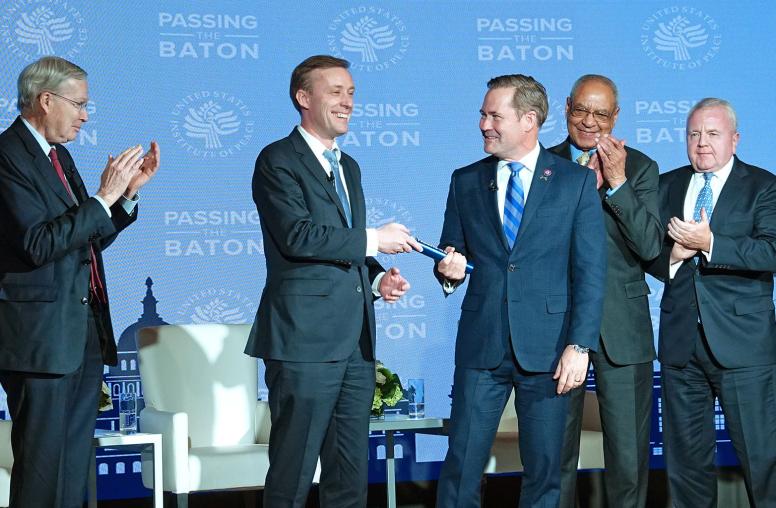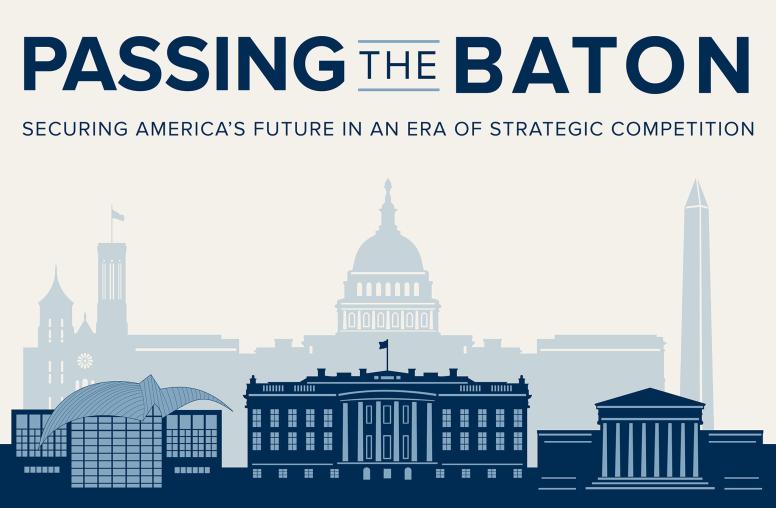Tunisian Leader Outlines Anti-Terrorism, Corruption Steps
Tunisian Prime Minister Youssef Chahed outlined the country’s efforts to improve security, reduce extremism, curb corruption and jump-start the economy, in a meeting with a group of current and former top U.S. officials and other experts at the U.S. Institute of Peace on July 11.

USIP President Nancy Lindborg and Chairman Stephen J. Hadley welcomed Chahed for the private, off-the-record meeting, co-hosted with the International Republican Institute.
Tunisian leaders have long sought more U.S. support since the country’s relatively peaceful emergence from the Arab Spring that descended into violence in several other countries of the Middle East and North Africa. The Prime Minister’s visit to the U.S. includes talks with Defense Secretary James Mattis, Treasury Secretary Steven Mnuchin and other officials, non-government organizations and business leaders.
The Tunisian leader, nominated by the Nidaa Tounes party and appointed by President Beji Caid Essebsi in August 2016, was accompanied at USIP by Ambassador to the U.S., Faycal Gouia, Deputy Minister of Foreign Affairs Sabri Bachtobji and other members of the official delegation.
Chahed is seeking to strengthen the U.S.-Tunisia strategic partnership as his government fights terrorism and corruption, and promotes economic reform, development and investment. In a public event at USIP in March, Tunisian Foreign Minister Khemaies Jhinaoui said any U.S. strategy against the ISIS terrorist group should include economic aid to undercut extremist recruitment. Essebsi spoke at USIP in 2015 on his first U.S. trip after taking office, saying broader democratization in the region depends on continued U.S. engagement.
Since 2012, USIP has supported Tunisia’s sustained efforts toward democracy and lasting stability, both as a model for a volatile region and to counter radicalization. USIP works on the ground with local partners, conducts research to inform policymaking, and convenes key leaders in the region and in Washington. USIP works with Tunisian partners to develop the country’s ability to resolve its internal conflicts, which could disrupt its progress and feed extremism.
In 2014, USIP established the Alliance of Tunisian Facilitators, a network of lawyers, journalists, civil society leaders and other professionals who have been trained to identify and resolve local conflicts through dialogue and collaborative problem-solving. With USIP’s support, the Alliance alleviated tensions between unlicensed street vendors and local law enforcement in the town of Kasserine, for example, through the creation of a market space where vendors could operate peacefully. The facilitators also convened activists, journalists, and police union members in the Gafsa region to diffuse tensions over arbitrary arrests and held trainings on conflict resolution.
In addition to the president and the foreign minister, other high-level Tunisian figures to visit USIP have included Sheikh Rachid Ghannouchi, the leader and president of the Ennahda Movement political party.



